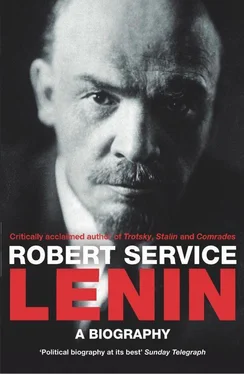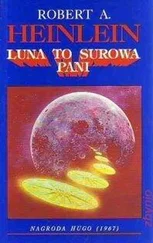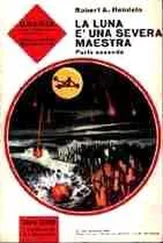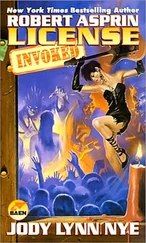He was an able suppressor of outward emotion. He acted calmly even after the trauma he suffered when his elder brother Alexander was hanged; and later he was to find steady satisfaction in his work alongside his wife. But things were not always on an even keel. We can see in some detail how other women tempted him and that one of them, Inessa Armand, held his heart for a while. But by and large, he was a manipulator of women. In securing their help, he played them off one against the other – and this meant putting his wife Nadezhda Krupskaya at the mercy of his less than kindly sisters. These women provided him with a regular support in day-to-day organisation. Krupskaya did not always fall for his charm. But mostly she did. In particular she returned to his side when he became mortally ill in 1922. Lenin was a bit of a hypochondriac and, if he had not been able to count on the active sympathy of his family, he would probably have erupted. There was always the possibility of an explosion: Lenin was a human time-bomb. His intellectual influences thrust him towards Revolution and his inner rage made this impulse frenetic. Lenin had greater passion for destruction than love for the proletariat.
His personality is closely linked to the kind of politician he became. His angry outbursts were legendary throughout the party before 1917; shortly before he died they became so acute that serious questions arose about his mental equilibrium, even his sanity. But usually he took a grip on himself and channelled his anger into a controlled form of aggression. He was a political warrior. This has never been a secret, but the intensity of his militant style can now be seen more clearly. Even in the moments of retreat, as when he introduced the New Economic Policy in 1921, he was wild in his declarations and proposals. It is true that he moderated his ideas after consultation with colleagues and acquaintances. But he stayed loyal to certain key understandings. His occasional restraint came from a man who wanted to fight hard but saw the advantage of temporary and partial withdrawal. He modified policies, sometimes in drastic ways when his power was under threat. But from its formulation at the beginning of the 1890s to his death in 1924 there was little change in his basic thinking. He could live for years in a locality – be it London, Zurich or Moscow – and fail to draw the conclusions about his surroundings that came easily to others without his hardened prejudices. He lived and died a Leninist. In his basic assumptions about politics Lenin was no chameleon.
The influences on him were not just Marxist. For some time we have known that he was influenced by the Russian agrarian-socialist terrorists of the late nineteenth century. Indeed there is no need to choose between Marxism and populism as if they were polarities: the two tendencies of thought massively overlapped each other. But there were other influences that are less familiar. Lenin’s childhood reading, from Uncle Tom’s Cabin onwards, had a lasting effect. So too did Russian literature – and some of his favourite authors such as Gleb Uspenski, who wrote stories about the Russian peasantry, strengthened his scepticism about the pleasanter side of contemporary peasant attitudes. In later life he picked up further ideas from writers such as Machiavelli and Darwin. He also assimilated ideas from chance acquaintances even if they happened to be hostile to Marxism. Thus the figure of Father Gapon, Orthodox priest and critic of the Romanov order, had a significant impact. Marxism was the primary ingredient of Lenin’s thought, but it gained a lot of its solidity from combination with other ingredients.
While Lenin stuck to his basic assumptions, he felt free to alter strategy even when it caused acute annoyance to his colleagues. On some questions he ignored them entirely. He relished the disputes over the October Revolution, the Brest-Litovsk Treaty and the New Economic Policy. But he was also a party boss who let his associates argue with each other to deflect criticism from himself. He was almost a one-man court of appeal. Lenin alone was respected by all sections of the Bolshevik party and his patriarchal style strengthened his dominance at least when he was in reasonable health. He also handled the party with finesse, managing to sound radical even when he was recommending moderation. Lenin could be evasive; he could also play down secondary dispute in pursuit of the supreme goal of the moment. More than most politicians, furthermore, he could speak in several registers at once. While using Marxist terminology, he could also develop popular slogans. The Party Congresses were always victories for him. He had a gift for ruthless and yet inspiring leadership. Steadily he learned how to widen the range of his political techniques. He never lost his teacherly style or his odd enunciation of words. But his force of personality and ideological commitment reinforced the message and he learned to trust his instincts.
Nevertheless he was not infinitely adaptive. Lenin’s austere personality had its counterpart in his narrow approach to politics. It took a huge effort for him to become a reasonable public speaker. He was a man of the printed word, a fanatical reader and writer. In fact the most effective exponents of twentieth-century political techniques in 1917 were the anti-Bolshevik premier Alexander Kerenski and Lenin’s fellow Bolshevik Lev Trotski.
And the common idea that Lenin was always a widely known figure is nonsense. Few knew what he looked like when he came back to Russia in 1917. His writings were familiar only to well-informed Marxists. In 1917 neither Pravda nor the other newspapers carried his visual image. Even in the Civil War he had difficulty in getting recognised by the general public. It was only after the inception of the New Economic Policy in 1921 that he became generally famous. This is of importance for a consideration of his political impact. Lenin was often absent for decisive moments in the history of his party and government. In Siberian exile and in European emigration he was frequently removed from the centre of action; in 1917 he could not return until April, and then in July he fled to Finland until the beginning of October. Furthermore, he was recurrently incapacitated by serious illness. We can now see that his health had been failing him since his early manhood. Ulcers, migraine, insomnia, St Anthony’s fire and both minor and major heart attacks laid him low. He had to leave much administration to others and, to his chagrin, his leading colleagues showed that they could run the state quite adequately without him.
Nonetheless Lenin did make history. In the April Theses of 1917 he drafted a strategy for the party to seize power. In October he insisted that power should be seized. In March 1918 he fended off a German invasion of Russia by getting a separate treaty signed at Brest-Litovsk. In 1921 he introduced the New Economic Policy and saved the Soviet state from being overwhelmed by popular rebellion. If Lenin had not campaigned for these strategical shifts, the USSR would never have been established and consolidated.
Not everything done by Lenin was carefully conceived. In particular, he had little foresight about what he was doing when he set up the centralised one-party state. One of the great malignancies of the twentieth century was created more by off-the-cuff measures than by grandiose planning. Yet the creation was far from being a complete accident. Lenin, even at his most improvisational, thought and acted in accordance with his long-held basic assumptions. He liked what he had done in his career. He was proud of his doctrines, his party and his revolution. And his influence was not confined to the events of his lifetime. His institutional legacy was immense. Lenin set up the Sovnarkom and dispersed the Constituent Assembly. Lenin created the Cheka. Lenin convoked the Communist International. More basically he had an impact upon assumptions. Lenin eliminated concern for ethics. Lenin justified dictatorship and terror. Lenin applauded the political vanguard and the need for firm leadership. Lenin convinced his party that his Marxism was pure and that it embodied the only correct policies. In strategy, institutions and assumptions Lenin had a lasting impact upon far-left socialism for his country and the world.
Читать дальше












